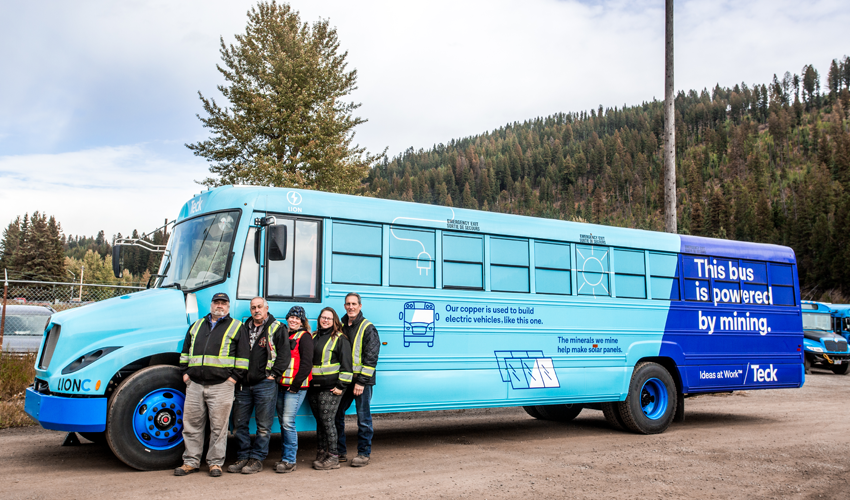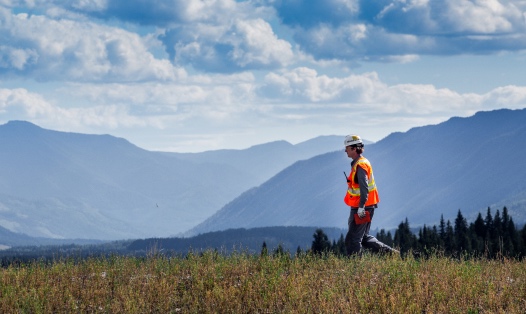For many people, the decision to purchase an electric vehicle is one of the best ways to reduce greenhouse gas (GHG) emissions in their personal lives. This decision comes with many questions- how much money will I save? How does it drive in winter? Can I take it on a long road trip? As Teck begins our journey to decarbonizing our vehicle fleet, we face similar questions about the cost, performance, and maintenance of a zero-emissions vehicle fleet. The rollout of our first two electric crew buses at our steelmaking coal operations will answer these questions, and provide insights into the benefits of integrating electric vehicles into our fleet.
Why electrify?
Our vehicle fleet, which runs primarily on diesel, generates a significant portion of our total GHG emissions. Low-emissions vehicles present great opportunities to reduce our carbon footprint and take advantage of cost savings and other benefits. For our operations in B.C., Canada, electrifying our vehicle fleet allows us to take advantage of the province’s 95% clean electricity grid and greatly reduce our emissions.
As part of our commitment to reducing our emissions and leveraging innovation and technology, Teck introduced two eLion C Series electric buses for crew transport in 2019, in a 12-month pilot project. This represents the first use of electric crew buses in the Canadian mining industry.
“The electric buses come with a higher upfront capital cost, but over a 10-12 year lifespan, are expected to have only half the cost of a diesel bus, thanks to savings on fuel and maintenance costs,” said Peter Wan, Lead, Technology and Innovation at Teck. “The electric bus pilot will help prepare us for the challenges of fleet electrification, and allow us to understand and take full advantage of the many opportunities.”
How do they perform?
The 40-passenger eLion buses replace diesel crew transport buses at our Fording River and Greenhills Operations in the Elk Valley. The GHG reduction of each bus is the equivalent of removing 10 combustion engine cars from the road.
On top of reducing emissions, the buses are quieter, offer a smoother ride compared to conventional diesel buses, and produce no harmful exhaust fumes, bringing additional benefits to employees and the community. Manufactured by Lion Electric in Quebec, Canada, the buses are built for operation in the harsh temperature and weather conditions found in the Elk Valley.
Each bus is equipped with safety features to reduce snow buildup and fogging around windshields, and automated charging and temperature control removes the need for extended idling and warm-up periods required by diesel buses. The buses are outfitted with high-performance lithium-ion batteries, giving them a range of up to 200 kilometers on a single charge.
Opportunities and Challenges of Electrification
Decarbonizing our vehicle fleet presents great opportunities, but also new challenges. For example, our teams will need to learn the unique maintenance and charging requirements of the buses. The pilot project will help us gain an on-the-ground understanding of these needs. Lion Electric is providing training to ensure the buses are properly operated and cared for, and to help our drivers use innovative features such as regenerative braking technology.
Supporting a Low-Carbon Economy
In addition to electric crew buses, Teck is also supporting efforts in the Elk Valley region to increase the adoption of personal electric vehicles. For example, as part of the Accelerate Kootenay’s initiative, in 2019 we provided funding for three fast-charging electric vehicle charging stations in the region.
Learn more about our approach to reducing energy and emissions and Taking Action on Climate Change.

